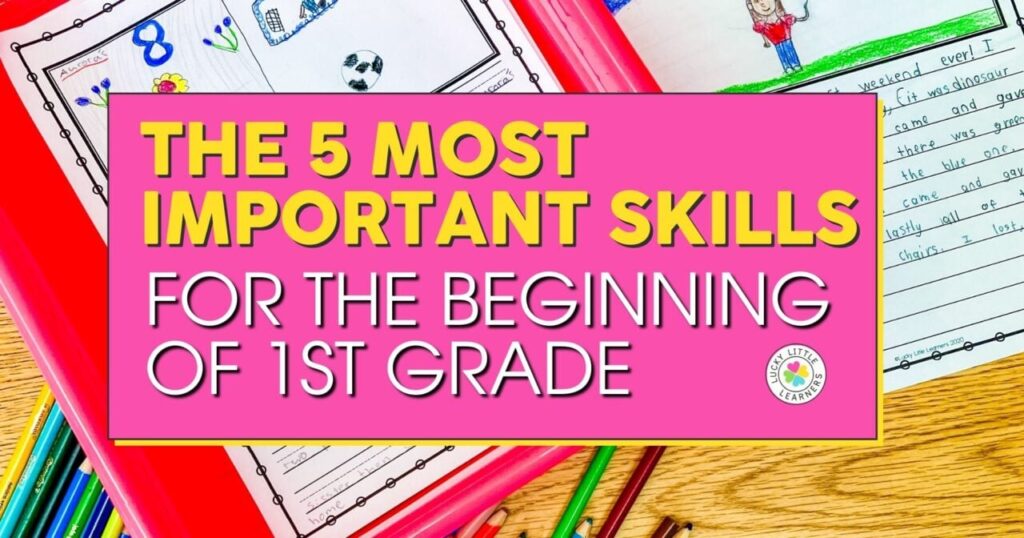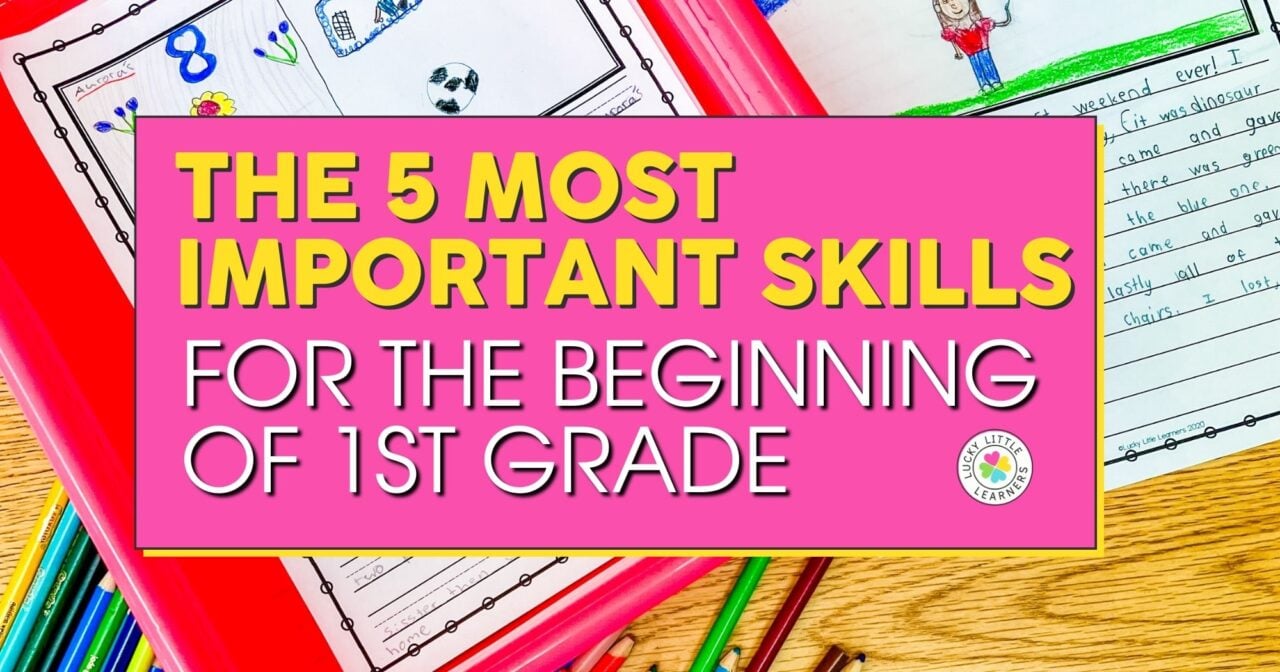
What First Graders Should Know: A Comprehensive Guide for Parents and Educators
Entering first grade is a significant milestone in a child’s educational journey. It’s a year of substantial growth, both academically and socially. As parents and educators, understanding what first graders should know and be able to do sets the stage for their future success. This article provides a detailed overview of the key skills and concepts that children typically learn in first grade, offering valuable insights and practical guidance for supporting their development.
Reading and Language Arts
Reading is a cornerstone of first grade. Children expand their vocabulary, improve comprehension, and develop a love for reading. Here’s what to expect:
Phonics and Decoding
First graders should solidify their understanding of phonics, the relationship between letters and sounds. They should be able to:
- Recognize and produce common vowel sounds (short and long vowels).
- Decode CVC (consonant-vowel-consonant) words like ‘cat,’ ‘dog,’ and ‘sun.’
- Blend sounds to read words.
- Use digraphs (sh, ch, th) and blends (bl, st, fr) to read words.
- Identify and read common sight words (also known as high-frequency words).
Reading Comprehension
Comprehension is more than just reading words; it’s understanding the meaning behind them. First graders should be able to:
- Answer simple questions about a story (who, what, where, when, why).
- Retell the main events of a story in their own words.
- Identify the main characters and setting.
- Make predictions about what might happen next.
- Understand the difference between fiction and nonfiction.
Vocabulary
Expanding vocabulary is crucial for reading comprehension. First graders should be able to:
- Learn new words through reading and direct instruction.
- Use context clues to understand the meaning of unfamiliar words.
- Understand synonyms and antonyms.
- Use newly learned words in their own sentences.
Writing
Writing skills develop alongside reading. First graders should be able to:
- Write simple sentences with a subject and a verb.
- Use capitalization and punctuation correctly (periods, question marks, exclamation points).
- Write a short narrative with a clear beginning, middle, and end.
- Write opinion pieces expressing their preferences with reasons.
- Write informative pieces sharing facts about a topic.
- Spell common words correctly.
Mathematics
First grade math focuses on building a strong foundation in number sense, addition, and subtraction. Here’s what what first graders should know in math:
Number Sense
A solid understanding of numbers is essential. First graders should be able to:
- Count to 120, starting at any number.
- Read and write numbers to 100.
- Understand place value (tens and ones).
- Compare numbers using greater than (>), less than (<), and equal to (=) symbols.
- Order numbers from least to greatest and greatest to least.
Addition and Subtraction
First graders should master basic addition and subtraction facts. They should be able to:
- Add and subtract within 20.
- Solve word problems involving addition and subtraction.
- Understand the relationship between addition and subtraction (e.g., if 3 + 4 = 7, then 7 – 4 = 3).
- Use strategies such as counting on, counting back, and using number lines to solve problems.
- Add and subtract multiples of 10 (e.g., 20 + 30 = 50).
Geometry
First grade geometry introduces basic shapes and spatial reasoning. First graders should be able to:
- Identify and describe two-dimensional shapes (e.g., circles, squares, triangles, rectangles).
- Identify and describe three-dimensional shapes (e.g., cubes, cones, cylinders, spheres).
- Compose new shapes from existing shapes.
- Divide shapes into equal parts (halves and fourths).
Measurement
First graders begin to explore measurement concepts. They should be able to:
- Measure the length of objects using non-standard units (e.g., cubes, paper clips).
- Tell time to the hour and half-hour using analog and digital clocks.
- Identify and know the value of common coins (pennies, nickels, dimes, quarters).
Science
First grade science introduces basic concepts in life science, earth science, and physical science. Here’s a glimpse of what first graders should know:
Life Science
- Understand the basic needs of living things (plants and animals).
- Learn about different animal habitats.
- Identify the parts of a plant.
- Observe and describe the life cycle of a plant or animal.
Earth Science
- Learn about different types of weather.
- Understand the concept of day and night.
- Identify different landforms (e.g., mountains, rivers, oceans).
- Learn about natural resources.
Physical Science
- Explore the properties of matter (e.g., solids, liquids, gases).
- Investigate how objects move.
- Learn about simple machines (e.g., levers, pulleys).
Social Studies
First grade social studies introduces children to their community, country, and the world. They’ll begin to understand what first graders should know about their place in society.
Community
- Learn about different community helpers (e.g., police officers, firefighters, doctors).
- Understand the importance of rules and laws.
- Learn about different types of communities (e.g., urban, suburban, rural).
Civics
- Learn about the symbols of the United States (e.g., flag, national anthem).
- Understand the importance of citizenship.
- Learn about famous Americans.
Geography
- Learn about maps and globes.
- Identify continents and oceans.
- Learn about different cultures around the world.
Social and Emotional Development
Beyond academics, social and emotional development is crucial in first grade. Children learn to interact with peers, manage their emotions, and develop important social skills. What first graders should know in this area includes:
- Cooperation and teamwork.
- Empathy and understanding others’ feelings.
- Conflict resolution skills.
- Following rules and directions.
- Self-regulation and managing emotions.
- Building positive relationships with peers and adults.
Practical Tips for Supporting First Graders
As parents and educators, there are many ways to support first graders in their learning journey:
- Read aloud to your child every day. This helps them develop a love for reading and expands their vocabulary.
- Create a reading-rich environment at home. Provide access to books, magazines, and other reading materials.
- Practice math facts regularly. Use games and activities to make learning fun.
- Encourage your child to ask questions. Foster a sense of curiosity and exploration.
- Provide opportunities for social interaction. Encourage your child to play with friends and participate in group activities.
- Communicate regularly with your child’s teacher. Stay informed about their progress and any challenges they may be facing.
- Celebrate your child’s successes. Acknowledge their efforts and accomplishments to build their confidence.
Understanding what first graders should know is a crucial step in supporting their academic, social, and emotional development. By providing a nurturing and stimulating learning environment, parents and educators can help first graders thrive and build a strong foundation for future success. Remember to focus on creating a positive learning experience, fostering a love of learning, and celebrating each child’s unique strengths and abilities.
By focusing on the key areas outlined above, and understanding what first graders should know, you can ensure they are well-prepared for the challenges and opportunities that lie ahead. The first grade year is a pivotal time for growth, and with the right support, children can flourish and develop a lifelong love of learning. This guide serves as a roadmap for parents and educators alike, providing a comprehensive overview of the skills and knowledge that first graders should acquire, ultimately setting them on a path towards a bright and successful future. Knowing what first graders should know empowers both educators and parents to provide the best possible support. Remember that every child learns at their own pace, so patience and encouragement are key. Focus on fostering a positive attitude towards learning and celebrating small victories along the way. By working together, we can help first graders reach their full potential and develop a lifelong love of learning. Understanding what first graders should know helps tailor support to individual needs. Knowing what first graders should know helps create targeted interventions. It’s important to know what first graders should know for effective teaching. Also, consider what first graders should know about digital safety. Remember what first graders should know about respecting others.
[See also: Supporting Your Child’s Reading Development]
[See also: Fun Math Activities for First Graders]
[See also: Building Social Skills in Elementary School]

